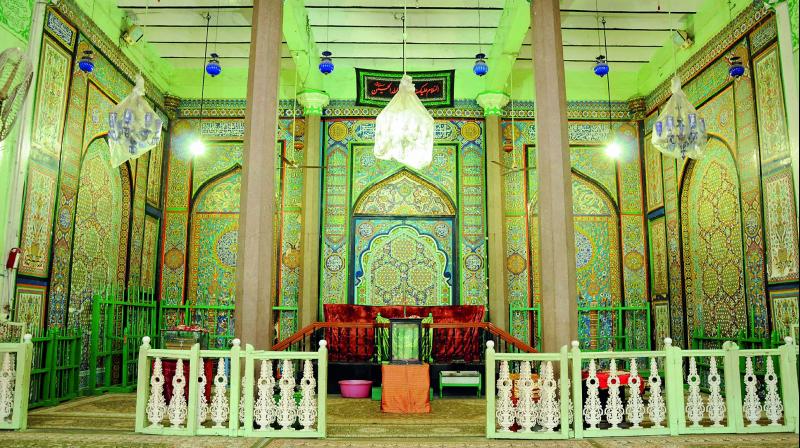Telangana Wakf Board for Shias not likely
Separation may create rift, feels state.

Hyderabad: The Telangana State government is of the opinion that it would not possible for it to constitute a separate Wakf Board for Shia Muslims to look after affairs of Wakf Institutions.
The government feels that the number of Shia institution does not fit the parameters of the Wakf Act for it to create a separate Board. The issue came to fore after the Hyderabad High Court recently directed the TS government to consider a representation by Anjuman-E-Alavi Shia Imamia Ithna Ashari (Akhbari) for constitution of a separate Board within six weeks.
Along with technical issues, the government feels that any attempts to create a separate Shia Wakf Board may create a rift between Shia and Sunni Muslims in the state, especially in the capital.
The Shia community had been claiming that over 33 per cent of Wakf properties in TS, particularly Ashoorkhanas, belongs to the community. The Wakf Act mandates constitution of a separate Wakf Board for Shias wherever 15 per cent of total Wakf properties in a state belong to the Shia community.
Moulana Waheduddin Hyder, a Shia elder who adheres to the Akhbari sect of the community, said that there are 11,056 Ashoorkhanas in the state. The number by itself constitutes 33 per cent of Wakf properties, he said.
Sunni Muslims counter this claim, saying that only about 33 per cent of these Ashoorkhanas are under the control of Shia Muslims. They say that a majority of these Ashoorkhanas are managed by mutawallis who are Sunni Muslims.
Pointing out that Bihar and Uttar Pradesh have separate Wakf Boards for Shia Muslims, Moulana Hyder says that is the responsibility of the TS government to constitute a separate Board for the upkeep of these Ashoorkhana.
A separate Wakf Board would give the community to maintain the Wakf institutions as per the rituals followed by the community, he said. According to Telangana State Wakf Board chief executive officer Mohammed Asadullah, as per Wakf records, there are 38,929 Wakf institutions in the state, of which only 183 institutions belong to Shia Muslims. This calculates to less than one per cent of the total Wakf institutions in the state
Hindu land for Ashoorkhanas
Sunni Muslims have been claiming that there is neither any definition nor declaration in the Wakf Act 1995 that all Ashoorkhanas belong to Shia Muslims.
The fact that in TS, a majority of dargahs belonging to Sunni Muslims have Ashoor-khanas, supports the claim of Sunni Muslims.
Mr Affan Quadri of Maher Organisation in the city said, “An Ashoorkhana is place where people gather to mourn the Martyrs of Karbala. Sunni Muslims also mourn the martyrs as much as Shias. In fact, it is a known fact that in many parts of the state, a large number of Hindus also observe Muharram.”
An official of the TS Wakf Board said that there are Ashoorkhanas that have been declared Wakf by Hindus. Some Ashoorkhanas in Ranigunj and Musheerabad of the city were given in ‘Wakf’ by Hindu families (donated so that the assets could be used for the Asho-orkhanas).
The official said that Sections 13 (2) and 13 (2-A) of the Wakf Act, 1995 stipulate constitution of separate Board for Shia with members of the community to look after affairs of their Wakf institutions.
A former member who represented Shias in the Wakf Board, on condition of anonymity, said “Instead seeking a separate Board, it would more appropriate for the Shias to ask the government to give more representation to the community on the Board.”
He said that the amended Act also envisages representation of two members from the Shia community wherever there are not enough number of Shia Wakf institutions Shia to constitute a separate Board for the community.

